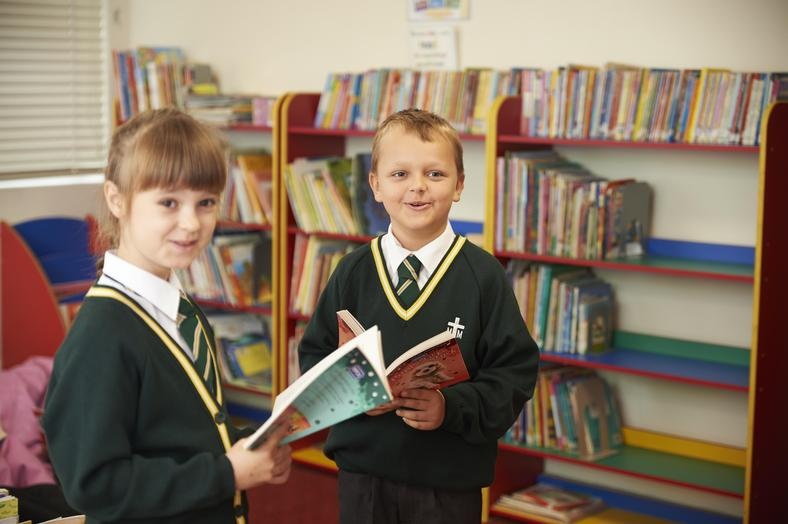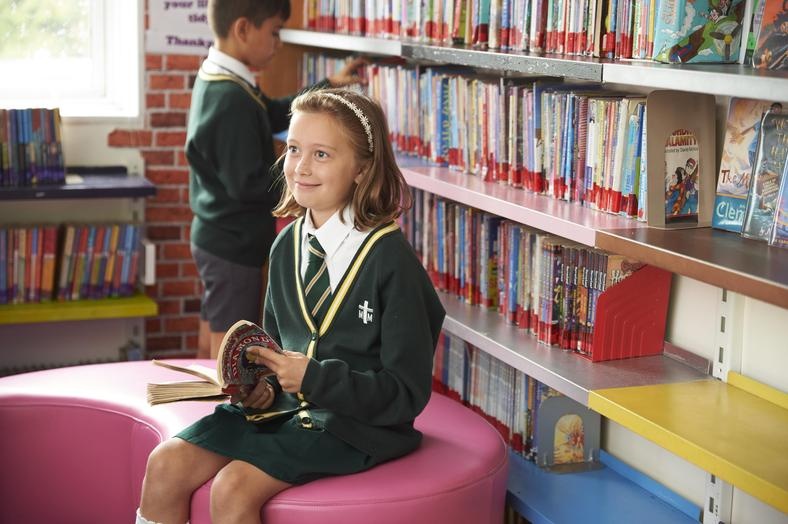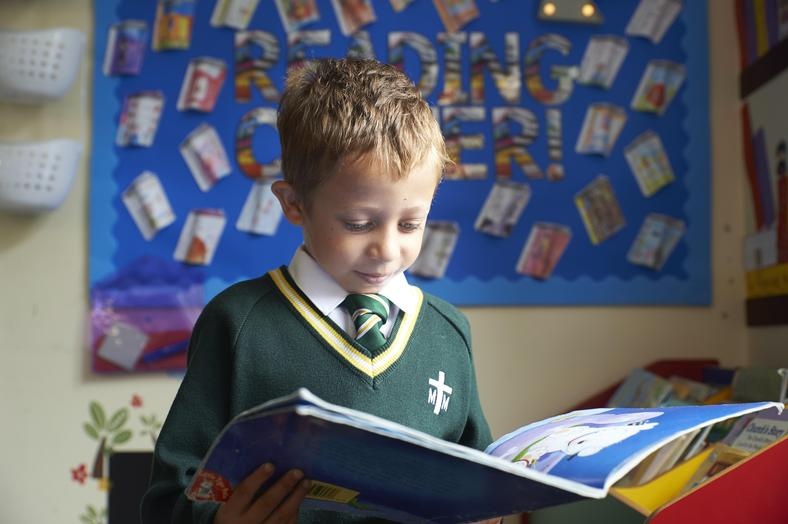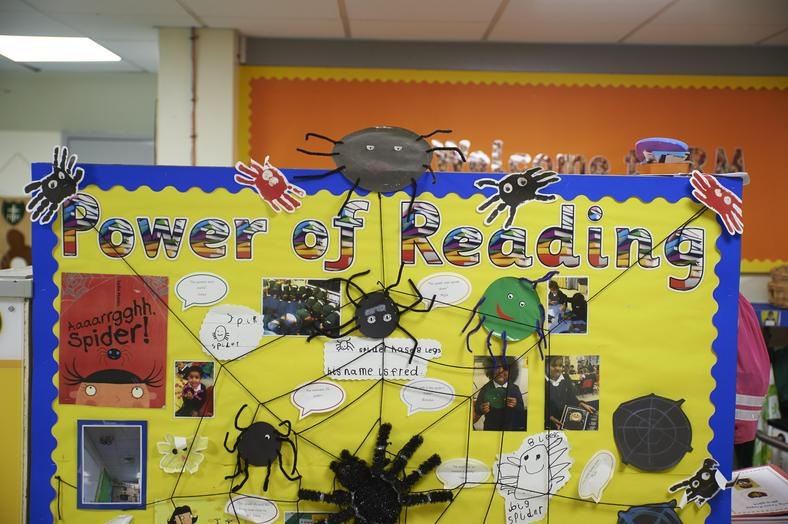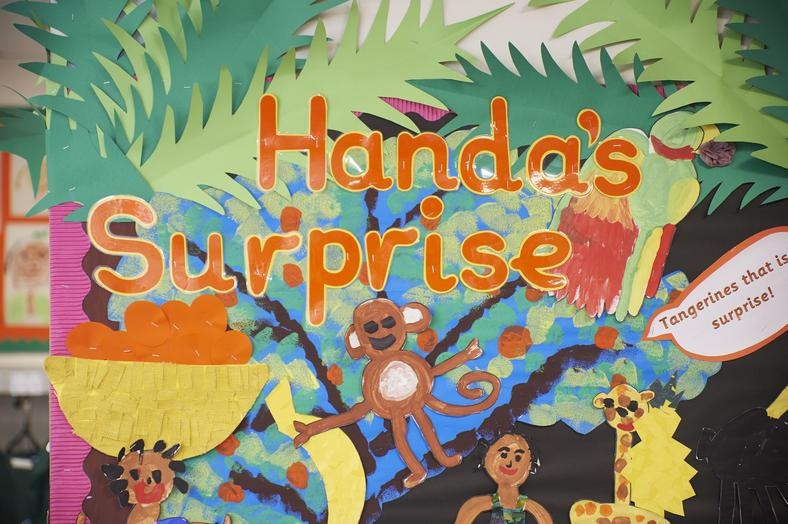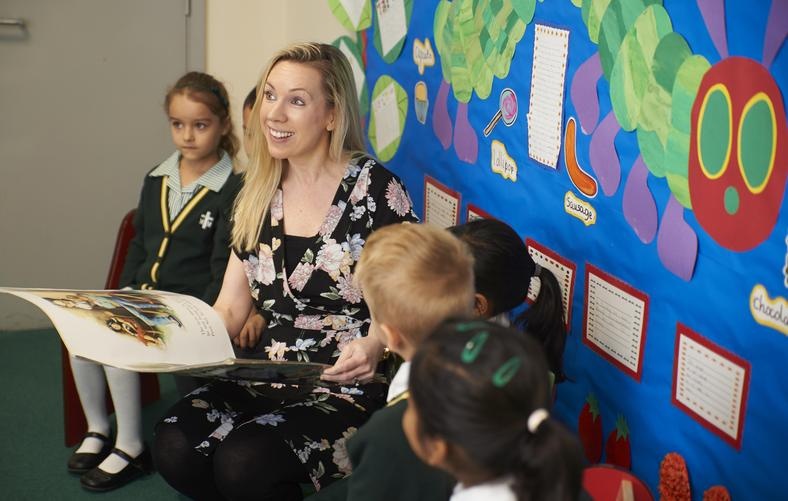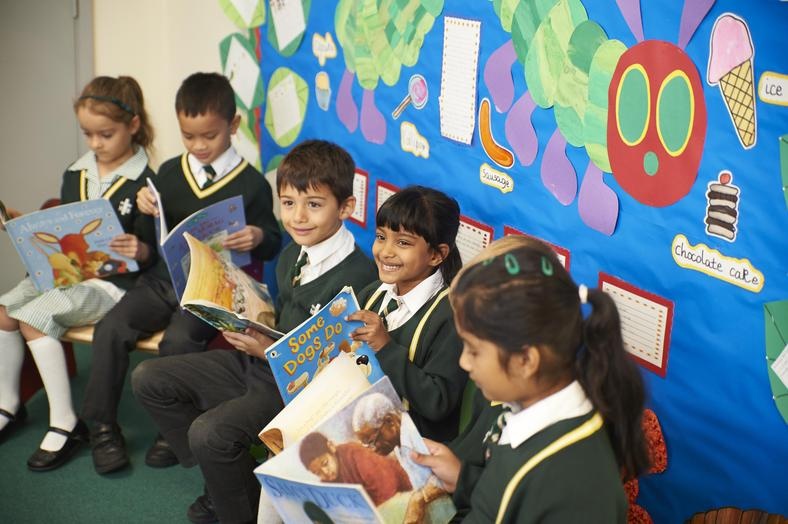Read Write Inc.
Phonics Workshop (recording) September 2021
September 2021- Read, Write Inc Phonics Workshop for Parents and Carers Powerpoint
Nursery Phonics Workshop May 2022
What is Read Write Inc for Phonics?
Children who read regularly have the opportunity to open the doors to so many different worlds! More importantly, reading will give your child the tools to become independent life-long learners and have a passion for reading.
We can achieve this together through:
- Read Write Inc, a program to help to your child read at school
- Encouraging children to develop a love of books by reading to them daily, at home and at school
- Giving children access to a wide range of books at school and at home
Read Write Inc., developed by Ruth Miskin, provides a structured and systematic approach to teaching literacy. The programme is designed for children aged 4-7. However, at St Michael and St Martin School we begin the programme in Nursery and will continue teaching RWI to children beyond the age of 7 if they still need support in their reading.
The Government has strongly recommended the use of synthetic phonics when teaching early literacy skills to children. Synthetic phonics is simply the ability to convert a letter or letter group into sounds that are then blended together into a word.
At St Michael and St Martin School, we are using the Read Write Inc (RWI) programme to get children off to a flying start with their English. RWI is a method of learning based upon letter sounds and phonics, and we use it to aid children in their reading and writing.
The children are assessed regularly and grouped according to their ability. They will work with a RWI trained teacher or RWI trained assistant teacher.
Our Read Write Inc 'Reading Leader' is Miss Ponter (Assistant Head and English/Phonics Lead)
Reading
When using RWI to read, the children will:
- Learn 44 sounds and the corresponding letter/letter groups using simple prompts
- Learn to read words using sound blending (Fred talk)
- Read lively stories featuring words they have learnt to sound out
- Show that they comprehend the stories by answering 'Find It' and 'Prove It'
Writing
When using RWI to write the children will:
- Learn to write the letter/letter groups which represent the 44 sounds
- Learn to write words by saying the sounds and graphemes (Fred fingers)
Talking
When using RWI the children will also work in pairs:
- To answer questions
- To take turns talking and listening to each other
- To give positive praise to each other
How will RWI be taught?
All children are assessed regularly by our RWI lead teacher so they work with children at the same level. This allows complete participation in lessons.
Nursery
When appropriate, children will be introduced to the initial sounds in short five-ten minute sessions.
Reception
In Reception, all children will learn how to ‘read’ the sounds in words and how those sounds can be written down. They will then begin to apply their phonic knowledge to their writing.
Year One & Year Two
Children follow the same format as Reception but will work on complex sounds and read books appropriate to their reading level. Daily sessions of RWI phonics last for up to one hour.
Five key principles underpin the teaching in all Read Write Inc. sessions:
Purpose – know the purpose of every activity and share it with the children, so they know the one thing they should be thinking about
Participation – ensure every child participates throughout the lesson. Partnership work is fundamental to learning
Praise – ensure children are praised for effort and learning, not ability
Pace – teach at an effective pace and devote every moment to teaching and learning
Passion – be passionate about teaching so children can be engaged emotionally
Further Information for Parents- Phonics Through RWI
- Phonics at St M&M.pdf
- RWI- Further Information
- Parent FAQs.pdf
- Set 1 Parent Information September 2021.pdf
- Set 2 and 3 Parent Information September 2021.pdf

